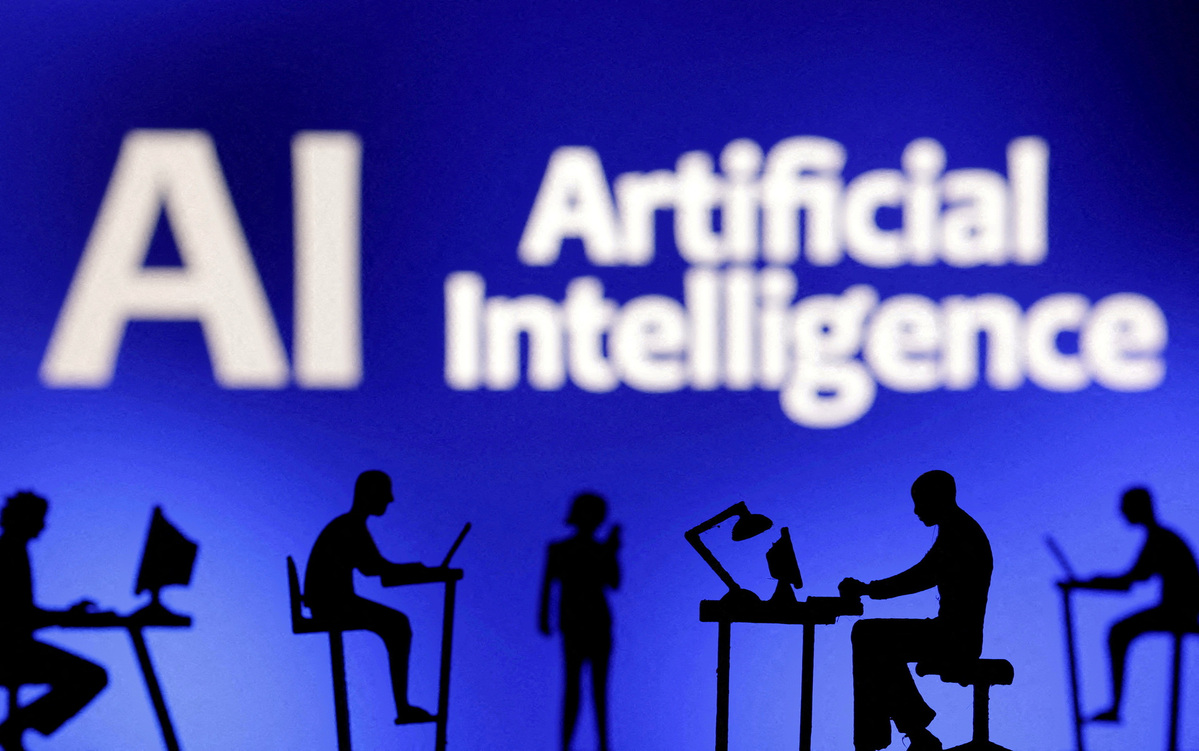
Figurines with computers and smartphones are seen in front of the words "Artificial Intelligence AI" in this illustration taken, Feb 19, 2024. [Photo/Agencies]
Leading experts in China's artificial intelligence research sector have called for the use of AI to create public goods for scientific research, which can be provided by China and shared with the world, emphasizing AI's role in promoting global sustainable development.
They made the remarks at a seminar held Wednesday by the World Internet Conference's special committee on AI. The theme was AI for Science, or AI4S, referring to the use of AI to accelerate scientific discovery and research.
Wang Jian, chief director of the committee and director of Zhijiang Lab, said the world may need a public good for scientific research, which China has the opportunity to provide.
Wang, who is also an academician of the Chinese Academy of Sciences, emphasized that to fully leverage the capabilities of all research achievements, including AI, a public good is necessary to support them.
He introduced the concept of "MAP," which stands for Mathematics, AI, and Public Good, drawing a parallel to the STEM concept in United States engineering education, which stands for Science, Technology, Engineering, and Mathematics.
He explained that when mathematics, AI, and infrastructure are well integrated, a public good for scientific research emerges.
The scientist stressed that this public good is meant to serve people worldwide rather than being exclusively owned by a few scientists, gradually transforming into a tool accessible to everyone.
Gong Ke, an advisor to the committee and executive dean of the Chinese Institute for New Generation Artificial Intelligence Development Strategies, highlighted the profound significance of the rapidly developing AI4S, which must be mastered and harnessed by humanity.
However, he emphasized that developing AI, including AI4S, is not the ultimate goal but a means to achieve sustainable development goals, which require international cooperation, scientific integrity, interdisciplinary collaboration, and open source and openness.
"For example, promoting AI's accessibility and reducing the digital divide, ensuring that AI is open, inclusive, transparent, ethical, safe, reliable, and trustworthy," he said.
Zeng Yi, a researcher at the CAS Institute of Automation and director of the committee, acknowledged the current achievements in AI research but also raised a question: How different is current AI from human intelligence?
He pointed out that AI is still an information processing tool that appears intelligent but makes many errors that humans do not.
"Currently, much progress is based on large-scale data statistics and high computational power, but we may still be quite far from achieving scientifically meaningful AI and the truly general AI that we aspire for," Zeng said.